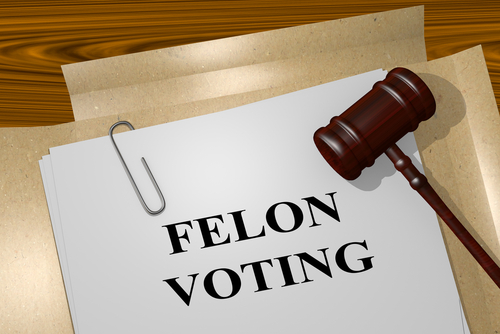The voting rights of more than 50,000 North Carolinians remain in question as a lawsuit over just when the state must restore voting rights for people leaving prison moves through its third year. WRAL-TV says with an April 22 deadline looming to register to vote in the May 17 primaries, the State Board of Elections voted Thursday to ask judges managing the case what they should do to follow conflicting rulings and with no quick end to the case in sight.
A divided three-judge panel said Monday that people who’ve finished felony prison sentences, but are still serving probation or parole, should be eligible to vote, amplifying an injunction the same 2-1 panel majority issued last year in the case.
The underlying lawsuit, Community Success Initiative v. Moore, filed in 2019, argues that North Carolina’s long-standing felony disenfranchisement laws are unconstitutional, a vestige of Jim Crow laws meant to keep Black people from voting. For decades people have been able to register to vote after finishing a felony sentence, but they must complete the whole sentence, probation, parole and any other supervised release included.
Plaintiffs in the case won a brief change to the policy last year, allowing some people to register as soon as they left prison. But the state Court of Appeals, and then the state Supreme Court, put that on hold while the case continued, so the only people in this category who are able to vote right now are the ones who registered between August 23 and September 3 of 2021.
For everyone else in this situation nothing is decided and they cannot register to vote right now. The case’s twists and turns have sown some confusion about who can and cannot register – a particular concern since people who aren’t eligible to vote can be charged with a crime if they do so.
Monday’s decision was signed by Superior Court judges Lisa Bell and Keith Gregory, and if upheld throughout the appeal process it would restore voting rights faster to an estimated 56,000 people. Judge John Dunlow dissented in the ruling.
.

